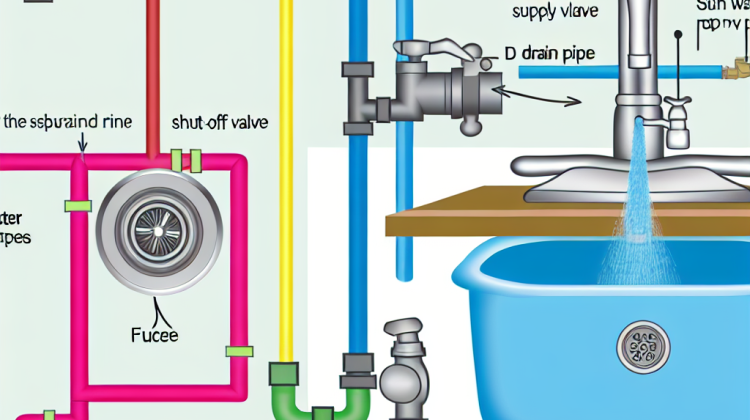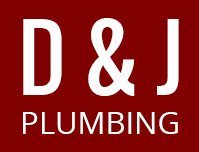
Did you know that most of the water we use at home goes down the sink? In fact, even our daily habits, like brushing our teeth or washing our hands, make that little bowl under the tap a big player in our plumbing system. This fascinating bit of knowledge highlights just how important sinks are. They’re like the finishing line in the plumbing race, where all that water flows to after a long journey through pipes.
Plumbing has been around for thousands of years! The ancient Romans were some of the first folks to build aqueducts and lead pipes to get water to their homes. Back then, it was a big deal. Nowadays, we take our sink for granted, but it’s still true that sinks are the very end of our plumbing. When everything’s connected, water flows through different pipes, and at last, it ends up in the sink. Understanding that means you can better appreciate how your home’s plumbing works.
Sometimes, it can be tough to figure out if your sink is really the end of the plumbing line. But here’s a fun fact: if you notice that your drain is clogged, it might not just be a simple problem. This could mean that something is stuck in those pipes leading to your sink. In fact, about 75% of drain clogs are caused by hair, grease, or food getting all tangled up. So, when a sink starts to back up, it’s a sign that the plumbing party is hitting a snag, and it’s happening right at the end of the line!
Now, have you heard about those pipes under your sink? They have fancy names, like P-trap or S-trap. These traps catch stuff that shouldn’t flow out of your house, which is pretty cool! They help prevent bad smells from seeping back into your kitchen or bathroom. When you figure out how those traps work, it’s like having a little plumbing superhero right there at the end of the line. They’re crucial because they make sure your sink is doing its job properly.
It’s important to know how to maintain your sink too! Simple things, like not pouring grease down the drain or using a drain cover to catch hair, can keep your plumbing in tip-top shape. Did you know that by being careful, you could save hundreds of dollars in plumbing repairs? Just by keeping an eye on what goes into your sink, you’re helping keep that plumbing smooth as butter.
You see, understanding your sink helps you solve problems before they get out of hand. If you notice water leaking or your tap is acting funny, it might be a signal that something bigger is going on down the line! Plumbing isn’t just about the big pipes hidden behind walls; it’s about how all the parts work together to bring water to you and carry waste away. Getting to know where your sink sits in that chain is like getting the cheat sheet for plumbing puzzles!
How to Know the Sink is the End of Plumbing
Okay, so let’s dive right into it! If you’ve ever wondered whether your sink marks the end of your plumbing, you’re not alone. Many folks have experienced plumbing problems and scratched their heads about where to start looking. Let me tell you, figuring out if your sink is the last stop for plumbing troubles can be easier than it sounds.
Common Signs the Sink is the Last Stop
First off, pay attention to what’s coming out of your sink. If you notice that water’s draining slowly or not at all, that’s a red flag. It could mean there’s a blockage in the pipes leading away from your sink. But what if the water’s flowing fine? Well, leaks can also tell you a lot. Have you ever seen water pooling around the base? That could mean your sink’s having a tough time holding it all in!
Smells and Sounds
Sometimes, it’s all in the smell. A funky odor, like rotten eggs, from the drain? Yikes! That’s often a sign there’s something wrong with the pipes. Or, maybe you’ve heard gurgling sounds every time you run the water. If it’s making weird noises, that might mean air is getting trapped in there. That’s another clue that your sink could be the end of the line for plumbing.
The Impact of Clogs
If you have a nasty clog, it’s not just a one-time thing. You might need to take some action! Did you know that more than 90% of plumbing problems are caused by blockages? That’s a big number! If you try to fix it with a plunger and nothing changes, it could mean your sink’s at the end of its plumbing road.
Checking the Pipes
Also, take a look under your sink! Check the pipes and fittings. If you see rust or cracks, that’s a sign they might not be working well. Sometimes, the pipes themselves can be the issue, leading to leaks and other problems down the line.
Calling a Professional
If you’re still scratching your head about your sink, it may be time to call in the experts. Sometimes, even the best DIY efforts can’t replace a qualified plumber. After all, they’ve got the tools and know-how to tackle even the messiest plumbing issues!
Don’t Ignore the Signs
It’s super important not to ignore what your sink’s trying to tell you. Ignoring problems can lead to expensive repairs later on. Remember, the sooner you address these signs, the better off you’ll be! You wouldn’t want a small leak turning into a waterfall in your home.
So there you go! Those are the ways to figure out if your sink is the end of your plumbing journey. Just keep an eye out for slow draining, weird smells, funny noises, and those pesky clogs! And, just for your info, more than 25% of homeowners deal with serious plumbing issues every year. So, you’re in good company!
“`html
Frequently Asked Questions
1. How do I know if my sink is clogged?
If your sink drains slowly, water bubbles, or if it won’t drain at all, it might be clogged. You can try running hot water to see if that helps!
2. What causes a sink to smell bad?
Yikes! A stinky sink often gets that way from food bits, grease, or soap buildup. Cleaning your sink regularly can help avoid the icky odor.
3. Can I fix a clogged sink myself?
Sure! You can try using a plunger or drain cleaner. Sometimes, simply removing the drain stopper and cleaning it out does the trick!
4. How often should I clean my sink?
It’s a good idea to give your sink a quick wipe down every day. A deeper clean every week will keep it fresh and shiny!
5. What if my sink is leaking?
Oh no! If your sink is leaking, check to see if the faucet or pipes are loose. Tightening them might solve the leak!
6. Why does my sink drain make noise?
Noisy drains can happen for a few reasons. Air bubbles might be trapped, or there could be something stuck. Look underneath to see if anything’s wrong.
7. Is it normal for my sink to drain slowly?
A slow drain isn’t great, but it can happen. It might need a good cleaning or a closer look to find what’s causing the slowdown.
8. How do I prevent clogs in my sink?
To keep things flowing smoothly, avoid putting grease, coffee grounds, or large food scraps down the drain. Using a strainer can also help!
9. Can I use baking soda and vinegar to unclog my sink?
You bet! Pour some baking soda down the drain, then add vinegar. Let it fizz, and then rinse with hot water for a natural clean!
10. When should I call a plumber?
If you’ve tried everything and your sink still won’t cooperate, it might be time to call a plumber. They have the tools and skills to fix the problem!
“`
How to Know the Sink is the End of Plumbing
When it comes to plumbing, the sink is like the grand finale of your home’s water system! If you notice that water isn’t draining like it used to, it might mean the plumbing’s taking a little vacation. Blockages can happen in the pipes, making your sink slower than molasses. Plus, if you see leaks or strange noises—like gurgling sounds—those are signs that something’s gone awry. Keeping an eye on these clues will help you figure out if your sink is at the end of the plumbing line.
Don’t forget that if the water’s just sitting in the sink, it’s usually a sign of bigger trouble down the line. Be sure to check for clogs or any signs of wear and tear. And, if things get really out of hand, don’t hesitate to call a plumber. They’ve got the skills to fix it up right. So, the next time you wash your hands or rinse out a dish, think about the hard work your sink does. It’s not just a place for suds and bubbles—it’s the end of a long journey for water, and keeping it happy means your plumbing stays happy, too!
